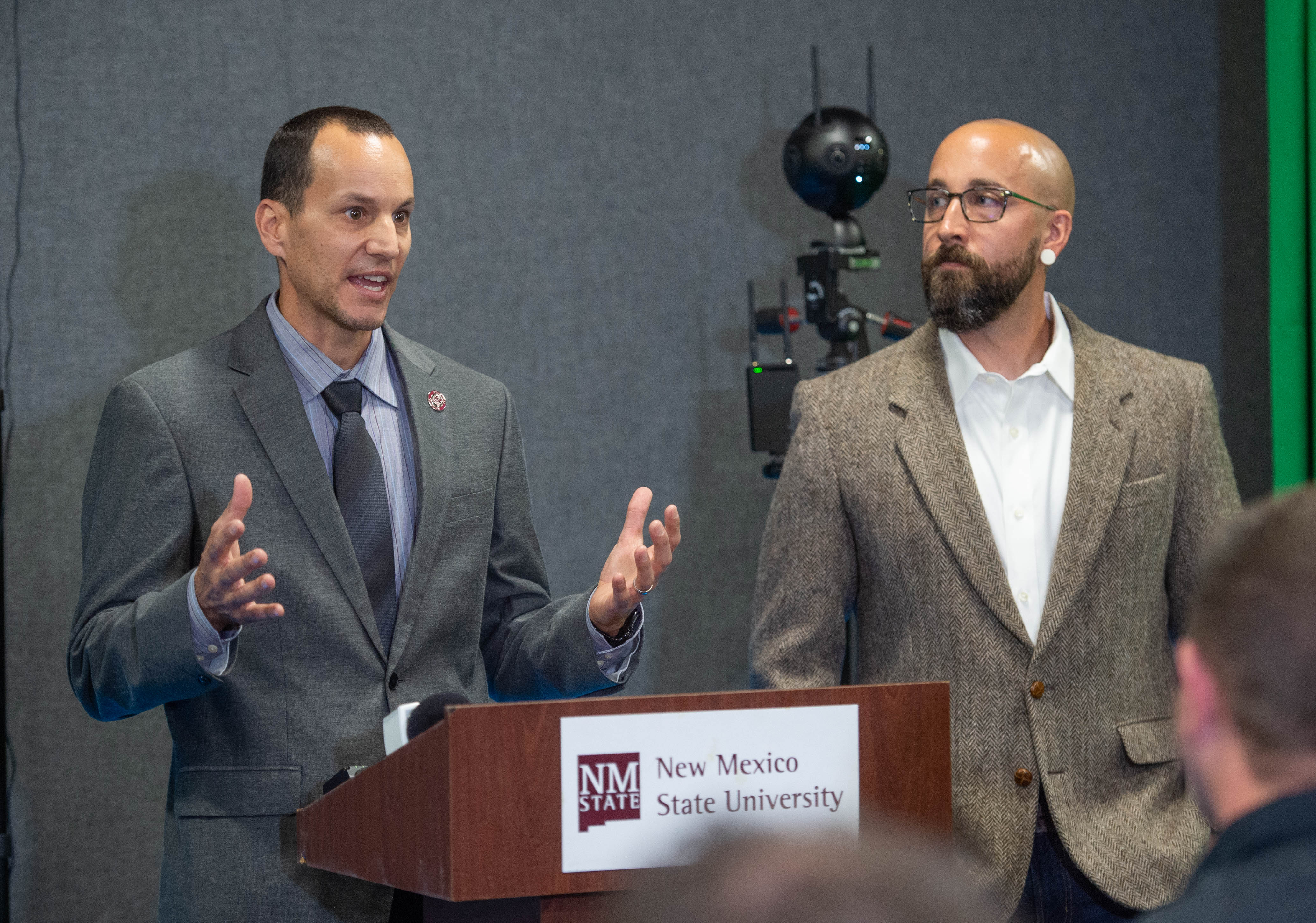NMSU, Electronic Caregiver unveil virtual reality lab at Milton Hall

With the generous support of Las Cruces-based tech company Electronic Caregiver, students and faculty at New Mexico State University will be able to conduct valuable research into aging, search scenarios, skill acquisition and motor performance in a lab featuring augmented and virtual reality technology.
The Addison Care Virtual Reality/Augmented Reality Lab was unveiled Wednesday, Oct. 2, in Milton Hall, Room 155, by representatives from Electronic Caregiver and the lab’s co-directors, Phillip Post and Michael C. Hout. The lab was made possible by more than $256,000 in funding donated to NMSU by ECG and will involve NMSU students and professors conducting research using augmented and virtual reality. In all, ECG has provided gifts to NMSU totaling more than $350,000.
“There’s not a lot of labs like this nationally,” said Post, who is also the head of the Department of Kinesiology and Dance at NMSU. “This allows us to study things not a lot of other universities are able to do.”
The lab allows researchers to create fully immersive environments that can be easily manipulated in order to gather data without creating risks for test subjects.
“This will simulate real life in ways we are unable to do with any other technology,” Hout said. “A ton of researchers that do the types of studies that we do want to do this level of research, but lack the resources to do so.”
Among the research that will be conducted at the lab are studies on slips and falls, search and rescue behaviors, rehabilitation scenarios and voice interaction in rehabilitation, visual search and aging. Virtual reality scenarios include a home environment that contains several items that present falls risk to older adults, such as cords, rugs, spills, gardening tools and a moving cat; a virtual vacation scenario to reduce environmental stress and discomfort; and a visual search scenario featuring a virtual replica of the courtyard of Regents Row, a former dormitory building on the NMSU campus.
The lab will employ a graduate assistant and two undergraduate research assistants from several departments across campus, including Kinesiology and Dance, psychology, computer science, electrical engineering and the Creative Media Institute.
“The partnership with Electronic Caregiver is an amazing opportunity for NMSU faculty and students,” Hout said. “Research using VR is exploding in popularity, as many scientists acknowledge its extraordinary utility. But doing research in VR is hugely costly and demanding of resources and money. Without our partnership with ECG, none of this would have been possible.”
Electronic Caregiver CEO Anthony Dohrmann called the laboratory “one of the most exciting projects we have,” and one that could potentially impact the lives of people around the world.
“Virtual reality and augmented reality get associated mainly with the gaming industry, but there are companies starving for developers to come up with real-world applications,” Dohrmann said. “Immersive education has a very bright future. We can take students down a path of experiences and challenges as though it’s really happening to them.”
NMSU Chancellor Dan Arvizu thanked ECG at Wednesday’s unveiling, stating he was pleased to see ECG not only support NMSU through projects such as the Addison Care Virtual Reality/Augmented Reality Lab, but by hiring NMSU graduates to work at ECG.
“As an NMSU alumnus and as someone who grew up in the region, the vision Tony Dohrmann has is extremely exciting to me personally,” Arvizu said. “This will help transform health care and the aging population all across the country, and it is extremely valuable to be on the cutting edge of this technology.”


